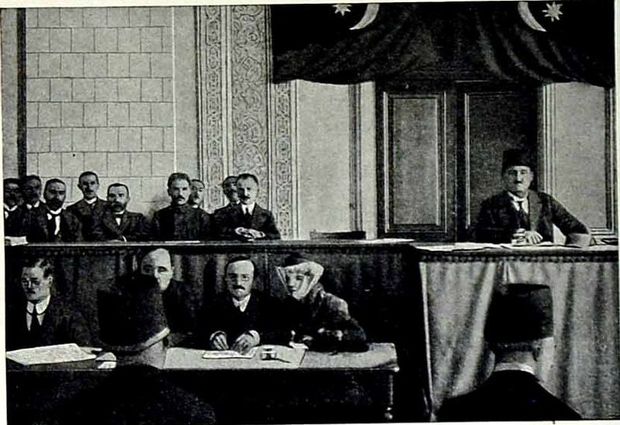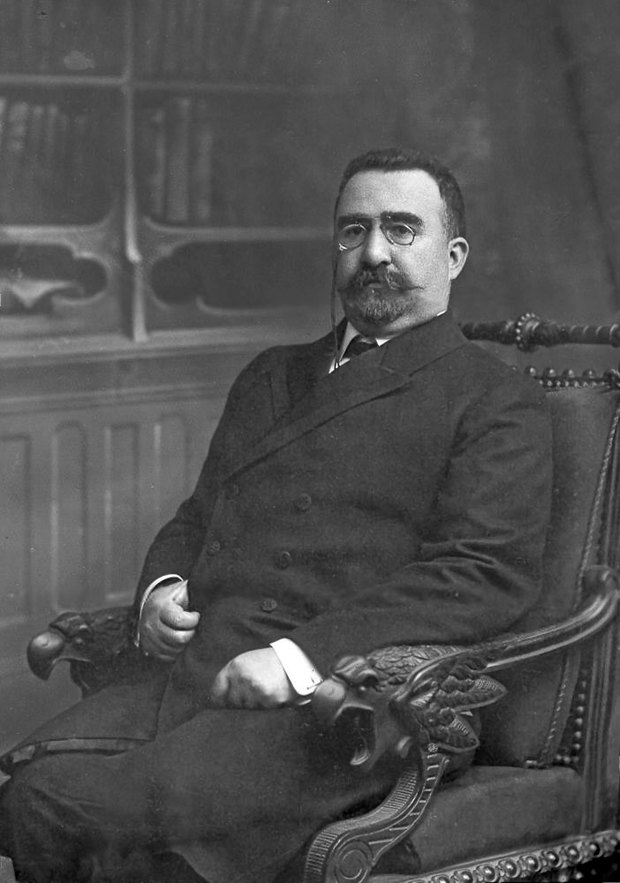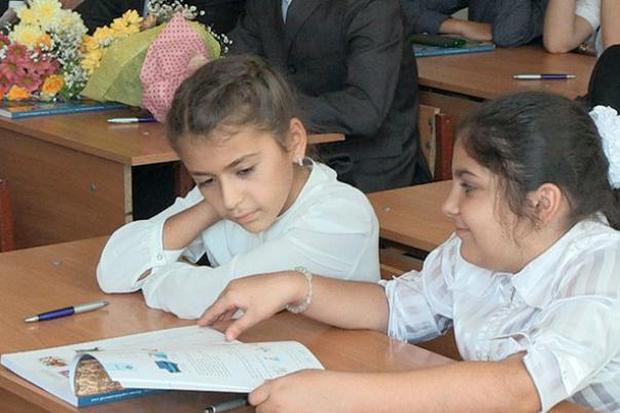''Tatar literature formed thanks to compositions of Azerbaijani writers''
Historian Sevinc Alieva about the first democratic country of the East, joint theatre projects with Tatars and difficult relations with Armenia
Director of the Department of History of Azerbaijani-Russian Relations of the Institute of History of the National Academy of Sciences of Azerbaijan, Doctor of Sciences Sevinc Alieva has recently visited Kazan. In an interview to Realnoe Vremya's reporter, the guest from Baku told about the formation of the 'first democratic country' in the East in the early 20 th century and revealed the causes of the Azerbaijani-Armenian conflict. The historian also told the influence of Azerbaijani classics on Tatar culture.
Example of democracy in the East
At the conference in Kazan dedicated to the 1917 Revolution, you mentioned the formation of the Azerbaijani state after 1917. Tatarstan readers don't know this question. Could you briefly tell about those times, please?
The Azerbaijan Democratic Republic was created on 28 May 1918. As the first parliamentary republic in history of Azerbaijan, at the same time, ADR was an example of a democratic, legal and world state of all the East, including the Turkic and Islamic world.
After parts of the 11 th Red Army crossed the border of ADR on 27 April 1920 and entered Baku on 28 April, a territory of ADR was occupied, the government of ADR stopped existing, the Azerbaijan Soviet Socialist Republic was announced. The independence of the Azerbaijani statehood in Northern Azerbaijan came to an end. The independence of the Republic of Azerbaijan recovered on 18 October 1991 by adopting the Act of the Constitution On State Independence of the Republic of Azerbaijan.

How long did independent Azerbaijan exist after the collapse of the Russian Empire?
From 28 May 1918 to 27 April 1920, for almost 2 years. But these two years were following: a parliament was created where representatives of all the parties and nationalities participated, the national army was created, the Azerbaijani language become official, about 100 students are sent to European country to study by the country, establishments were nationalised, subjects were taught in the official Azerbaijani language, women were given rights in line with men, the Baku State University opened, the national art was given freedom, international relations with other countries were established, so diplomatic relations also developed. A new legal framework was created. The anthem, emblem, ADR's flag – all the symbols of an independent country — appeared. All the peoples living in ADR were announced legal citizens of the republic.
Could you tell what contacts activists of the Azerbaijani national movement (founders of Azerbaijan) had with Tatar national political and social activists?
The Azerbaijan and Tatar intelligentsia managed to unite and act as one in the Muslim faction of the State Duma of the Russian Empire and different social organisations. They decided to unite all the Turkic peoples.
Kazan Azerbaijanis created their national community between the 19 th and 20th centuries that propagated and distributed Molla Nasreddin satiric magazine, which was edited by great Azerbaijani writer and satirist Jalil Mamedkulizade.
Azerbaijani-born Alimardan Topchubashov can be rightly considered the leader of Russian Muslims. In January 1905, Topchubashov became one of the addressees of founder of the political movement of the Russian Ummah Gabderrashid Ibragim's letters about the creation of the All-Russian Muslims Congress.

At the first All-Russian Muslim Congress, Topchubashov delivered a key speech: ''We, Turkic people, have one origin, race, one religion…''
Tatar performing literature and art formed thanks to compositions of Azerbaijani writers Mirza Fatali Akhundov, Nariman Narimanov, Jafar Jabbarly, Najaf Vazirov about the social and political, literary and cultural movement of late 19 th-early 20th centuries. Azerbaijani theatre attracted Tatar artists with its romantic tragedies. A Tatar theatre company staged plays with Azerbaijani artists. The Union of Kazan and Caucasus Artists was created where Tatar actors, directors and dramaturgs exchanged experience with theatre masters and performing literature of Caucasus. Azerbaijani plays were actively translated into the Tatar language and staged.
Armenians vs. Azerbaijanis: roots of the conflict
We, citizens of Kazan, see quite a cruel opposition between Azerbaijan and Armenian activists. Are contradictions between the two peoples and countries so deep that you can't manage to solve them?
What a people and country will agree to have its land occupied? Will you cooperate with those who will occupy Tatarstan? So we made attempts, but they all were not successful. Political officials of Armenia don't make compromises.
How did the Armenian-Azerbaijani conflict begin?
Everything began when the Armenians migrated to the South Caucasus, which was part of the Russian Empire's colonisation policy. Then discrimination of Muslims was detected. The status of the Armenians as Christians rose, they had a more privileged situation: the Armenians were state workers, they were represented in all the spheres of life. As time went by, their coefficient of the bourgeoisie was higher than that of Azerbaijan. The Armenians became politically active earlier. Conflicts arose in places where Armenians and Azerbaijanis lived together. As a small group, the Armenians wanted to get rid of the local Muslims by all means. The Turkish Armenians decided to do in Caucasus what they did not manage to achieve in Turkey. Great countries, for instance, England and Russia, used the Armenians for their purposes. We need to stress that there were not any interethnic conflicts earlier. The 'Armenian issue' started to be constantly used right after the Berlin congress.

''Subjects in about 327 vocational educational establishments are taught in the Azerbaijani and Russian languages, at 16 schools – only in Russian, and students in 27 universities of the country study in both the Azerbaijani and Russian languages.'' Photo: aze.in.ua
As far as you understand, it was needed to put pressure on Turkey where the Armenians wanted to create their autonomy. The Armenian terror evolved in Caucasus was against not only Muslims but also the Russian power in the person of high officials (Andreyev, Golitsyn and many others). And it happened while the power was tolerant to them. Arrests of Dashnaktsutyun began in 1909, they even were brought to court in Saint Petersburg in 1911.
Russia is Armenia's ally anyway. At the same time, Moscow has good relations with Baku. How do we manage to get along with both sides?
Because of economic and humanitarian aid. In addition, the Russian Federation is a northern neighbour and strategic partner of the Republic of Azerbaijan. A big Russian community that integrated to the Azerbaijani society lives in Azerbaijan. Conservation and development of the Russian language in the republic is one of the key factors of Azerbaijani-Russian social, political and humanitarian relations. It is curious that nowadays the Russian language has not lost its positions in Azerbaijan, it has not been driven out from the national education system. The number of educational establishments in Russian and the number of students there are illustrative evidence. Subjects in about 327 vocational educational establishments are taught in the Azerbaijani and Russian languages, at 16 schools – only in Russian, and students in 27 universities of the country study in both the Azerbaijani and Russian languages. Baku has the Baku Slavic University, a branch of the Moscow M.V. Lomonosov State University and I.M. Sechenov First Moscow State Medical University opened, there is a Russian information and culture centre, Russian Drama Theatre named after Samed Vurgun. Several Russian information agencies have their bureaus in Azerbaijan. Over 50 newspapers and magazines in the Russian languages are issued in Azerbaijan, a big number of Russian periodicals are distributed. The first post-Soviet House of Russian Book where books of Russian publishing houses are sold works in Baku. Azerbaijan holds humanitarian and educational events and campaigns in different regions of Russia (Astrakhan, Volgograd, Ulyanovsk, etc.).
The Department of History of Azerbaijani-Russian Relations opened in the A.A. Bajikhanov National Academy of Sciences of Azerbaijan opened in 2015. The department mainly works to explain Azerbaijani-Russian historical links and strengthens the foundations of the centuries-old fraternal friendship of peoples of the two countries. And Armenia is a country that is Russia's ally in all the historical indicators, down to military cooperation. It is a kind of outpost in the South Caucasus. Probably we manage to get along with thanks to the president's impartial view or the countries' economic benefit.